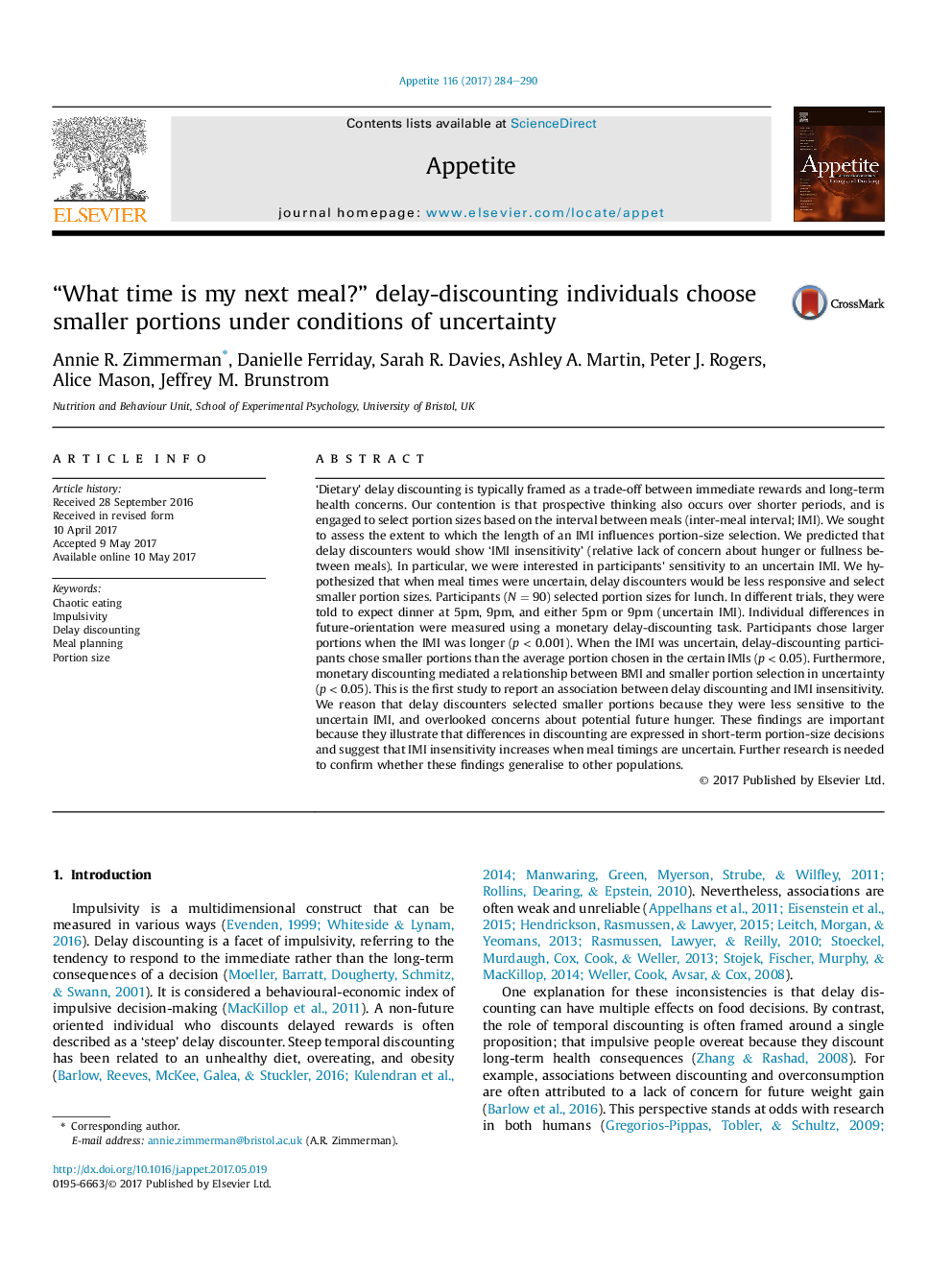| کد مقاله | کد نشریه | سال انتشار | مقاله انگلیسی | نسخه تمام متن |
|---|---|---|---|---|
| 5044008 | 1475364 | 2017 | 7 صفحه PDF | دانلود رایگان |
'Dietary' delay discounting is typically framed as a trade-off between immediate rewards and long-term health concerns. Our contention is that prospective thinking also occurs over shorter periods, and is engaged to select portion sizes based on the interval between meals (inter-meal interval; IMI). We sought to assess the extent to which the length of an IMI influences portion-size selection. We predicted that delay discounters would show 'IMI insensitivity' (relative lack of concern about hunger or fullness between meals). In particular, we were interested in participants' sensitivity to an uncertain IMI. We hypothesized that when meal times were uncertain, delay discounters would be less responsive and select smaller portion sizes. Participants (N = 90) selected portion sizes for lunch. In different trials, they were told to expect dinner at 5pm, 9pm, and either 5pm or 9pm (uncertain IMI). Individual differences in future-orientation were measured using a monetary delay-discounting task. Participants chose larger portions when the IMI was longer (p < 0.001). When the IMI was uncertain, delay-discounting participants chose smaller portions than the average portion chosen in the certain IMIs (p < 0.05). Furthermore, monetary discounting mediated a relationship between BMI and smaller portion selection in uncertainty (p < 0.05). This is the first study to report an association between delay discounting and IMI insensitivity. We reason that delay discounters selected smaller portions because they were less sensitive to the uncertain IMI, and overlooked concerns about potential future hunger. These findings are important because they illustrate that differences in discounting are expressed in short-term portion-size decisions and suggest that IMI insensitivity increases when meal timings are uncertain. Further research is needed to confirm whether these findings generalise to other populations.
Journal: Appetite - Volume 116, 1 September 2017, Pages 284-290
